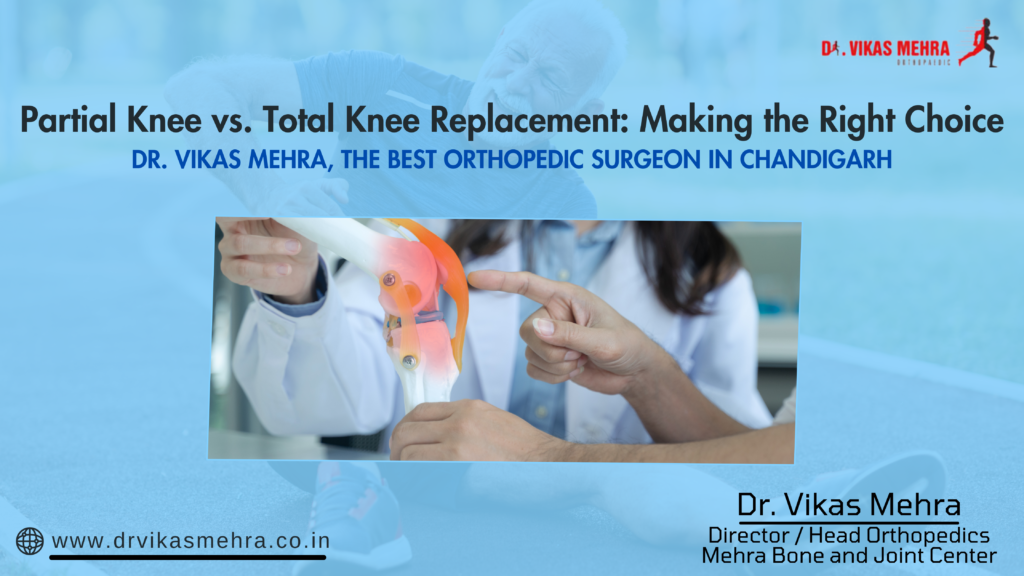Introduction
Knee pain can be debilitating, and when conservative treatments no longer provide relief, knee replacement surgery becomes a viable option. However, deciding between partial and total knee replacement is a crucial step in the process. In this blog, we’ll explore the differences, benefits, and considerations of these two procedures to help you make an informed choice. Plus, we’ll introduce you to Dr. Vikas Mehra, a leading orthopedic surgeon at the best knee replacement hospital in Chandigarh.
Partial Knee Replacement:
- Selective Approach: Partial knee replacement targets only the damaged portion of the knee, preserving healthy bone and tissue.
- Faster Recovery: Patients often experience quicker recovery times, reduced pain, and improved joint function.
- Minimal Invasive: Smaller incisions result in less scarring and a shorter hospital stay.
Total Knee Replacement:
- Comprehensive Solution: Total knee replacement addresses the entire knee joint when multiple compartments are affected.
- Long-Term Reliability: It’s often recommended when the damage is extensive, providing lasting pain relief and improved mobility.
- Single Surgery: Total knee replacement may require just one surgery, making it a practical choice for some patients.
Factors to Consider:
- Extent of Damage: The decision depends on the extent of knee joint damage.
- Age and Activity Level: A patient’s age and expected activity level post-surgery play a role in choosing the right procedure.
- Surgeon’s Recommendation: Rely on the expertise of a skilled orthopedic surgeon like Dr. Vikas Mehra to guide you in making the best choice.
Meet Dr. Vikas Mehra:
Dr. Vikas Mehra, a renowned orthopedic surgeon at the best knee replacement hospital in Chandigarh, is dedicated to helping patients regain pain-free mobility. His expertise ensures the most suitable procedure is selected for your unique needs.
Conclusion:
Making the decision between partial and total knee replacement is crucial in your journey towards a pain-free and mobile life. Consulting with a skilled orthopedic surgeon like Dr. Vikas Mehra is the key to achieving the best outcome. Choose wisely, and take that step towards a more active and pain-free future.

